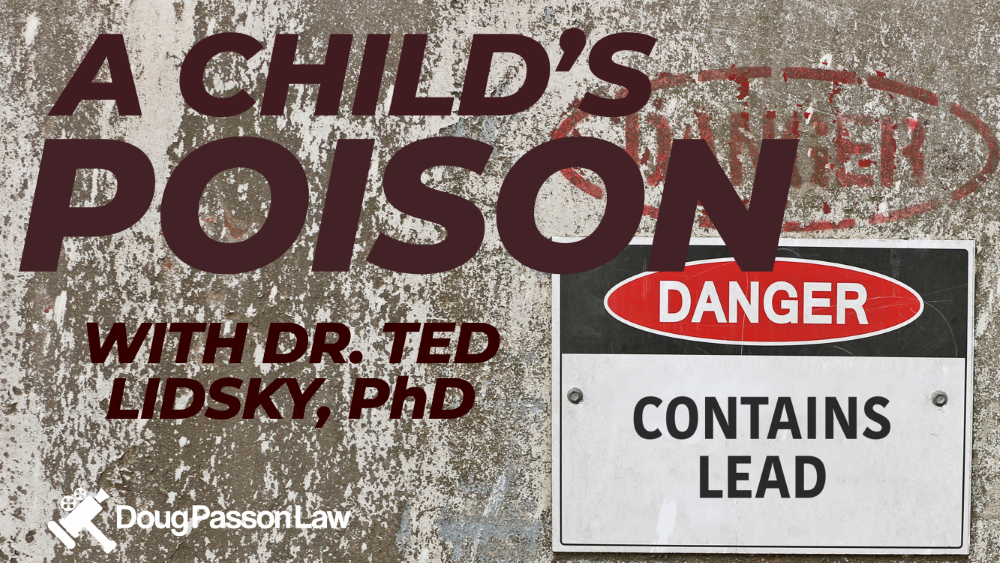A Child’s Poison: Lead Poisoning as Sentencing Mitigation with Dr. Ted Lidsky

The government often weaves false sentencing narratives about our clients: they are born bad, uncontrollably violent, no concern for others, no respect for the law. There’s always a more truthful, powerful, and humanistic story to tell. And in some of those cases that story could be LEAD POISONING!
The fact is, the probability of those who have been poisoned with lead and other toxins as children are much more likely to run afoul of the law because of frontal lobe damage affecting judgement, impulsivity, executive functioning, and a host of other impairments. Moreover, there’s a significant correlation between lead poisoning and violent crime. External factors such as stress and trauma exacerbate the effects of lead poisoning.
I’m sure I’ve missed this issue more than a handful of times in the 1000+ cases I’ve handled, because I didn’t know what I didn’t know on this subject. I don’t want that to happen to you.
Therefore, in order to put this issue on all of our radars, helping us get set for sentencing is a world-class expert on lead poisoning, neuropsychologist Dr. Ted Lidsky.
IN THIS EPISODE:
- What are common ways a child can be exposed to lead;
- How do you quantify or prove lead exposure if it happened so long ago;
- Half-life of lead in the brain and bones;
- Some telltale signs of lead poisoning;
- Lead causing problems with impulse control;
- Socio-economic disparities of lead poisoning and help to ameliorate the fallout;
- Why a child can appear normal yet still have significant brain damage;
- The importance of “effect modification” in developing the whole lead poisoning narrative.
If you think you need an expert to deal with a led poisoning issue in your case, reach out to Dr. Lidsky at: tlidsky@gmail.com
Sharing is caring!



